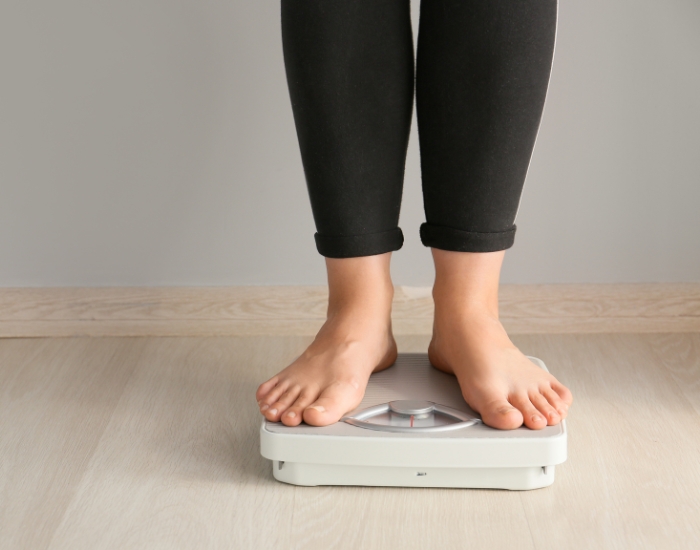Experiencing swelling in your hands and feet can be uncomfortable, and in some cases, it may be a symptom of an underlying health condition like chronic kidney disease (CKD). While swollen limbs are often linked to issues like injury or pregnancy, when coupled with other CKD symptoms, it may signal something more serious. Understanding the connection between swelling and CKD, as well as how to manage these symptoms, can help you take control of your health and avoid complications.
Understanding CKD and Its Impact on the Body
Chronic kidney disease (CKD) is a long-term condition where the kidneys gradually lose their ability to filter waste and excess fluids from the blood. As kidney function declines, waste products build up in the body, leading to a range of symptoms, including swelling.
In CKD, the kidneys’ inability to regulate fluid balance often results in fluid retention, causing swelling in various parts of the body, most notably the hands, feet, and ankles. This is often referred to as edema and is one of the telltale signs that the kidneys are struggling to function properly.
Why Swelling Happens in CKD
Swelling in the hands and feet occurs when the kidneys can no longer efficiently remove excess fluids from the body. As a result, fluid builds up in the tissues, leading to visible swelling. Other factors may also contribute to swelling, including:
- Decreased kidney function: As CKD progresses, the kidneys lose their ability to filter waste and balance fluids, leading to fluid retention.
- Protein loss: When the kidneys are damaged, they may leak protein into the urine, causing a drop in protein levels in the blood. This can lead to swelling in the hands, feet, and other parts of the body.
- High blood pressure: Often associated with CKD, high blood pressure can also contribute to fluid buildup and swelling.
- Medications: Certain medications, such as those used to treat CKD or other related conditions, may have swelling as a side effect.
Identifying Other Symptoms of CKD
Swollen hands and feet alone are not enough to diagnose CKD, but they are one of several symptoms that may indicate kidney issues. If you’re experiencing swelling alongside other signs, it’s important to pay attention to your body and consult with a healthcare provider. Common symptoms of CKD include:
- Fatigue: Feeling tired or weak even after adequate rest can be a sign that the kidneys aren’t working properly.
- Changes in urination: Increased or decreased frequency of urination, especially at night, can be indicative of kidney dysfunction.
- Shortness of breath: Fluid buildup in the lungs can make it difficult to breathe comfortably.
- High blood pressure: Uncontrolled hypertension is both a cause and a symptom of CKD.
- Nausea or vomiting: A buildup of waste products in the body can lead to gastrointestinal discomfort.
What You Can Do to Manage Swelling and CKD Symptoms
If you’re experiencing swollen hands and feet along with other CKD symptoms, it’s essential to seek medical attention. A healthcare provider can perform tests, such as blood work and urine analysis, to assess kidney function and determine the appropriate course of treatment.
In the meantime, here are a few steps you can take to manage your symptoms:
- Limit salt intake: Excess sodium can lead to fluid retention. Reducing your intake of salty foods can help alleviate swelling.
- Stay hydrated: Drinking plenty of water is important for kidney health, but if your kidneys are not functioning properly, you may need to limit your fluid intake. Follow your doctor’s advice on hydration.
- Elevate your legs: If your feet and ankles are swollen, elevating your legs can help reduce swelling and improve circulation.
- Exercise regularly: Physical activity can help improve circulation and manage swelling. Consult your doctor for appropriate exercise recommendations based on your health status.
When to See a Doctor
Swelling in the hands and feet, especially when combined with other CKD symptoms, requires medical attention. An early diagnosis can help prevent the progression of kidney disease and improve your quality of life. If you’re experiencing persistent swelling, fatigue, or other kidney-related symptoms, schedule an appointment with a healthcare provider as soon as possible.
Final Thoughts: Don’t Ignore the Signs
Swollen hands and feet can be a frustrating and uncomfortable symptom, but they shouldn’t be ignored, especially if they’re accompanied by other signs of kidney disease. Taking action early can help you manage your health and prevent more serious complications. If you are experiencing these symptoms, consult with the expert physicians at My Healthy Place Clinic for personalized treatment and care. We’ll work with you to address your symptoms and develop a plan to help you live a healthier life.
Disclaimer:
The information provided in this blog is for educational purposes only and is not intended as medical advice. It should not be used to diagnose or treat any health condition. Always consult with a qualified healthcare professional for accurate diagnosis and treatment of any symptoms or medical concerns.



